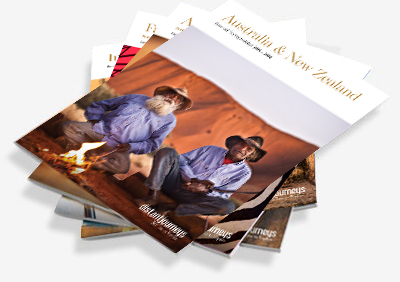SOUTH AFRICA FAQ’s
 Find the answers to some of the most frequently asked questions from our customers
Find the answers to some of the most frequently asked questions from our customers
-
Is there a time difference?
Cape Town, Johannesburg and Victoria Falls are all GMT +2hrs
-
What is the currency?
Country / Currency / Additional information
Botswana / Botswana Pula / Botswana Pula cannot be obtained before entering Botswana
Eswatini / Swazi Lilangeni / South African Rand is widely accepted
Mozambique / Mozambican metical / South African Rand and US Dollars are widely accepted
Namibia / Namibian Dollar / South African Rand is widely accepted
South Africa / Rand
Zimbabwe / Zimbabwe Dollar / Zimbabwe dollar cannot be obtained before entering ZimbabweIf travelling on our African Rail Adventure when visiting eSwatini and Mozambique, USD will be accepted. When travelling on our Namibian Rail Safari, South African Rand will be accepted whilst on Rovos Rail. No matter which country you are travelling to please take note of the following general advice;
- ATMs are generally available in major cities, less so in rural areas.
- Credit cards are generally widely accepted in the majority of hotels, cruises, larger international restaurants and shops, although be aware credit card payments may incur an additional fee.
- If purchasing small items or purchasing from local shops, restaurants and markets, local currency is always recommended.
- Outside of major cities, with the exception of hotels, local currency is always recommended.
- If you are planning to use your debit or credit card whilst travelling, advise your bank of your travel plans in advance so you do not encounter potential problems when trying to withdraw cash or make a payment.
- When you change money, ask for some small bills and keep these, along with coins separate from the larger ones, so that they’re readily accessible. Carrying small notes and coins separately is also handy for tipping.
- It is always worth carrying a small amount of UK Sterling or US Dollars as these can always be readily exchanged.
- Keep your exchange receipts as these may be needed if you want to exchange any remaining currency you have at the end of your trip.
Currency Cards
In addition to using Travel Credit cards and Debit cards, a currency card is also a popular way of buying currency for your holiday. You can preload these before leaving the UK and many also offer advantageous exchange rates. If travelling to multiple countries, different currencies can be loaded and used for card payments or ATM cash withdrawals. We recommend the Revolut card, which offers 150 currencies and enjoys favourable exchange rates, making it a perfect card to use for any card payments, such as hotels and restaurants. You can withdraw cash from ATMs whilst abroad, but there is a limit of £200 per month, before paying a 2% fee. For further benefits on using currency cards and more information on Revolut please visit distantjourneys.co.uk/revolut-currency-card -
What will the weather be like?
Below is a guide on the typical weather you can expect whilst on tour, however it is important to note that climates may vary between different regions. Note: Weather patterns are generally becoming less predictable so the information we provide should be used as a guide only and is no guarantee of the weather at the time you travel. We also recommend checking up-to-date weather forecasts before you travel.
Botswana
The weather is generally hot and humid, with daytime temperatures in Chobe rarely dropping below 30°C, although the evenings and early mornings tend to be cooler. June and July tend to be a few degrees cooler with daytime temperatures in the mid to high twenties. December through to March see the most rainfall within Chobe, characterised by downpours in the afternoon.eSwatini
eSwatini’s (formerly Swaziland) summer is October-April. Generally, during this period whilst hot and sometimes wet the vegetation is green and there is abundant birdlife. The dry winter months run from May to October. Winter mornings and evenings can be chilly, dropping as low as 5°C June-July.Mozambique
Mozambique has a subtropical climate. The dry season lasts from April to December, with temperatures between 25°C and 32°C, the rainy season runs January to March, when you can expect slightly higher temperatures and an increase in humidity.Namibia
Expect temperatures from 25°C to 30°C during the day in the cooler months of April and May, with little or no rainfall and low humidity. Early morning and evening temperatures will drop to around 13°C or lower. Rain is most likely to occur in the form of afternoon downpours in March and November. Daytime temperatures rise to around 30°C, but with humidity still generally low in these months.South Africa
In the Western Cape areas of Cape Town and the Garden Route, summers tend to be warm, cooled by ocean breezes, with rain falling occasionally. Umhlanga and Bayala, found in KwaZulu-Natal can have very hot summers. Johannesburg and Pretoria are situated at altitude on the highveld plateau and generally enjoy a hot climate with the occasional thunderstorm. Due to the altitude evenings can be a little cooler. Kruger is likely to be hot with occasional thunderstorms in the late afternoon and early evening.Zimbabwe
September to November marks the end of the dry season and the weather is generally hot and humid. The falls are at their lowest level, which gives excellent visibility from the Zimbabwe side. Rains in late October and November transform the terrain into a lush, green oasis. In January to March the height of the summer and rainy season can produce dramatic thunderstorms in the afternoons. The falls are in full flow, although some views can be limited due to the mist produced by the falls. -
What clothing should I take to South Africa?
Dress for our tours is generally relaxed and informal during the day, dressing to suit the weather conditions and the activity you are undertaking. Evening dinners are also informal, with smart casual dress being the norm. Whilst on safari in Africa, is it recommended to wear natural colours such as khaki, green or beige as bright colours can attract insects and cause diversions for the wildlife. It’s likely there will be occasions when exploring you’ll be walking on uneven surfaces, so we recommend sturdy and comfortable walking shoes. Wearing layers of clothing means it’s much easier to deal with potentially varied weather conditions – remember it will be cooler at higher altitudes – and it’s always advisable to carry a waterproof, good insect repellent, a high factor sunscreen lotion and a hat for protection from the sun.
Rovos Rail and The Blue Train
If travelling on Rovos Rail, or the Blue Train, evening attire is more formal – for gentlemen, a jacket and tie is a minimum requirement, while for ladies a cocktail / evening dress or suit is suggested. On our multi-day rail tours there will be occasional themed evenings where guests can dress up accordingly or opt for smart casual. Bear in mind some countries you will visit adopt a more conservative standard of dress than we are used to in the UK. When visiting sacred places, it is recommended that arms and legs are covered. Women may also wish to take a shawl to cover their shoulders and all visitors should wear long trousers, or skirts or shorts that reach below the knee. Taking off your shoes is also a prerequisite before entering many sacred places. -
What is the best way to pay for things in South Africa?
Major credit cards and cash machines are widely available throughout your tour and your tour manger will be on hand to help you find the best places to exchange your money.
Local currency is always recommended for small purchases and tipping. Coins and small bills are ideal for this. When you change money, ask for some small bills and keep these separate from the larger ones, so that they’re readily accessible. We also recommend advising your bank of your travel plans prior to departing from the UK so you do not encounter potential problems when trying to withdraw cash.
A currency card is also a simple way to buy currency and lock in a great exchange rate before you travel. Distant Journeys recommends Revolut, a digital banking app which offers a pre-paid physical or virtual currency card. It is also simple to apply for, set up and use.
For more information on the Revolut Currency Card, please click here
-
How much should I tip in South Africa?
In Africa, it is customary to offer gratuities, particularly in the hospitality industry, as a way of showing your appreciation for good service. Tips remain discretionary, however if you are happy with the service you have received, we would suggest the following amounts:
- Tour Manager: R100 – R150 / USD $5.00 – $8.00 per person per day, up to a maximum of R1000 per couple
- Local Guide: R50 – R75 / USD $3.00 – $4.00 per person per day
- Driver: R50 – R75 / USD $3.00 – $4.00 per person per day, up to a maximum of R500 per couple Safari’s
- Ranger: R100 – R150 / USD $5.00 – $8.00 per person per day
- Tracker: R50 – R75 / USD $3.00 – $4.00 per person per day
In most safari camps, guides and trackers are tipped directly, with other staff usually sharing the proceeds of the ‘general staff tip box’.
Rovos Rail & The Blue Train
Between R100 – R150 / USD $5.00 – $8.00 per person per day There will be a marked envelope in your suite that you can hand directly to the Train Manager who will distribute any amounts on a pro-rata basis among the staff on board. -
What are the entry requirements for South Africa?
The following information on entry requirements, passports and visas is for British citizens only. Holders of a British Subject passport, non-British citizens and holders of a passport endorsed in any way should check immigration requirements with the relevant embassy or consulate of the country to be visited, as should clients with dual nationality or renounced citizenship. If travelling with a child aged under 18, there are additional immigration rules that apply. Please call us for further details and refer to the
Foreign Advice website as shown below.
-
Do I need to renew my passport?
A valid ten-year British passport is required for all our holidays, valid for a minimum of six months after your return date to the UK. If you are not currently in possession of a valid passport, please make sure you leave plenty of time before your holiday to apply for this document. A full British passport presently takes approximately up to 10 weeks to obtain. If you are 16 or over and have not yet arranged a passport, you should apply for one at least 10 weeks before your departure from the UK. The UK Passport Service must confirm an applicant’s identity before issuing their first passport and will ask them to attend an interview to do this. Please note, if you need to apply for visas after you receive your new passport, you will need to factor in additional time for this.
For more information on passport and entry requirements please visit the Government Passport Office website or see our website for more details.
-
Will I need a visa to enter South Africa?
This table provides a quick guide, for British Citizens, to which countries require a visa. If visas are required it is highly recommended you allow for a minimum of two blank pages per visa required, three if travelling to Zimbabwe. If a visa is being purchased locally, we recommend you have the correct amount, in the relevant currency, as change is not always available.
Country / Visa required / Cost
Botswana / No
eSwatini / No
Mozambique / No / R200 administration cost payable to Rovos Rail
Namibia / No
South Africa / No
Zimbabwe / Yes / USD $55 per person for a single entry USD $70 per person for a double entryApplying for your visa
The below information provides guidance on how to apply for your visa. Alternatively, if you would prefer to have assistance with your visa and have the application process managed by a visa company, we recommend The Visa Travel Company. The below information provides guidance on how to apply for your visa. For more detailed information along with useful links to the Foreign O ce please refer to the FAQ section of our website.Botswana
Currently a visa is not required for any travellers entering Botswana. Important: If travelling to Botswana, as we enter/depart via Zimbabwe, please also refer to information on Zimbabwe visas.eSwatini
Currently a visa is not required for any travellers entering eSwatini.Mozambique
A visa is not required for Mozambique if staying for less than 30 days. A entry fee of 650 Mozambican meticais is payable to enter the country. Rovos Rail will handle on your behalf for an estimated cost of R200 per person.Namibia
Currently a visa is not required for any travellers entering Namibia.South Africa
Currently a visa is not required for any travellers entering South Africa.Zimbabwe
If travelling to Zimbabwe a visa is required.
If you are extending your holiday to Victoria Falls your visa can be arranged on arrival at Victoria Falls Airport, together with payment. If you are travelling to Victoria Falls on our African Rail Adventure, Rovos Rail will help facilitate whilst travelling onboard.
If you are only planning to visit Victoria Falls a single entry visa will be required. However, if you are considering taking our day excursion to Chobe National Park from Victoria Falls, or are booking our Chobe, or Victoria Falls & Chobe Holiday extension you must purchase a double entry visa for Zimbabwe.NOTE: Entry requirements may change and it is your responsibility to ensure you are in possession of all necessary travel, passport, visa, and other entry requirements before departure. All costs incurred in obtaining such documentation must be paid by you. We regret we cannot accept any liability if you are refused entry onto any transport or into any country due to failure on your part to obtain and carry all required documentation.
-
Do I need to have any vaccinations for South Africa?
Health facilities, hygiene and disease risk vary worldwide. In South Africa, Zimbabwe and Botswana, many of the main tourist areas we visit are malaria free. However, some of the areas we visit may pose a low malaria risk. You should take health advice from your GP or local travel clinic about your specific needs as early as possible and ensure that vaccinations or preventative measures are taken early enough (which may be a month or more prior to departure) to be fully effective by the date of travel. For more information on health and vaccinations please visit the Foreign Office website www.gov.uk/foreign-traveladvice and NHS Travel Vaccinations website on: https://www.nhs.uk/conditions/travel-vaccinations/
-
I've heard there are power cuts in South Africa. How will this affect my holiday?
The government in South Africa has ordered the national utility companies to implement a system of controlled power outages, known as load-shedding, to conserve supplies and increase capacity. These outages are in the form of a power cut, typically lasting only a few minutes but occasionally longer. The hotels used by Distant Journeys have back-up generators, so any disruption caused by load-shedding will be minimal.
BOOK WITH CONFIDENCE
Award-winning Holidays
Distant Journeys has won 23 awards over the last seven years, at the British Travel Awards, and we have been awarded Feefo’s highest Platinum Trusted Rating for customer satisfaction.
Guaranteed Price Promise
Know you are paying the best price for your holiday with our Price Promise. We never offer last minute discounts and we guarantee the earlier you book the better the offer you’ll receive.
100% Financial Protection
Book in the confidence your money is 100% safe. All Distant Journeys holidays are fully bonded by the Civil Aviation Authority (ATOL number 10913) or ABTOT (number 5427).
ORDER YOUR BROCHURES TODAY

Planning your next holiday? Let Distant Journeys give you some travel inspiration.
There are three easy ways to request your brochures – just click on your preferred option below:
online brochures |
your brochures |
brochures by post |
CUSTOMER REVIEWS






